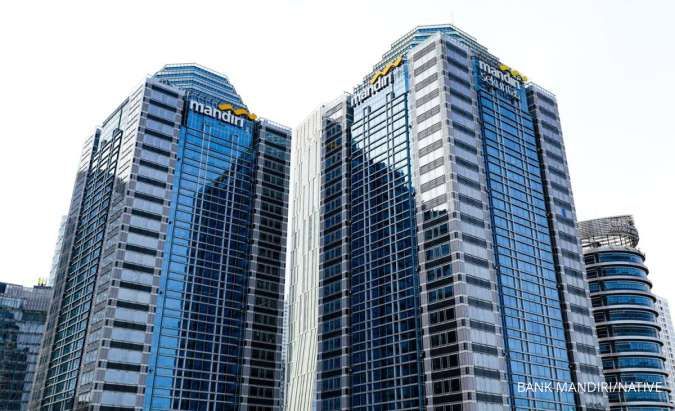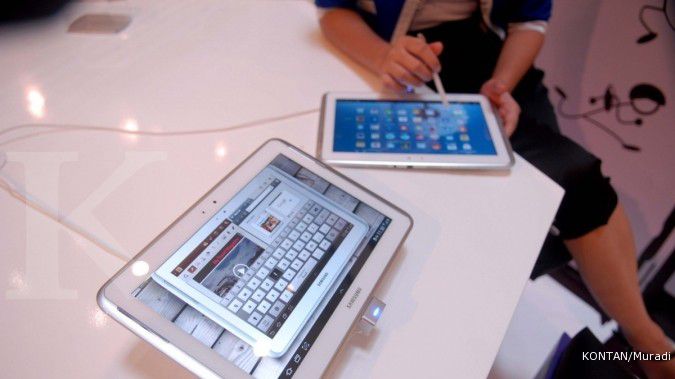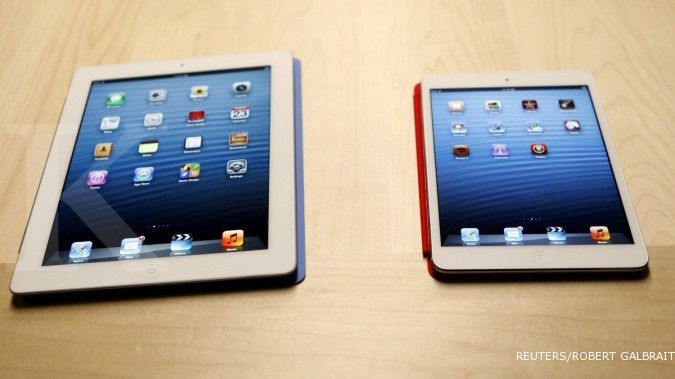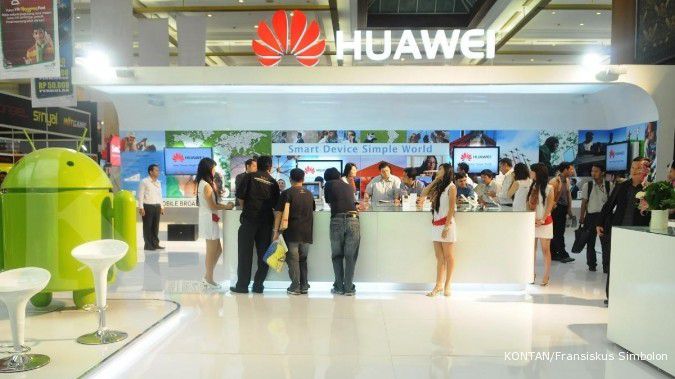JAKARTA. A frenzy of media people from various countries descended on the Samsung Southeast Asia, Oceania and Taiwan Forum 2013 held in Jakarta on Wednesday to check out the array of new products — from 85-inch ultra-high definition televisions to 8-inch tablets, the Korean electronics giant has to offer. The forum, better known as Samsung Forum 2013, is an annual event Samsung holds annually to generate a buzz for its new products. After hosting the event in Bangkok, Thailand last year, Samsung has brought the event to Jakarta as an acknowledgement of its rising interest in the robust Indonesian market. Gregory Lee, Samsung Asia president and CEO, said that the company had “been watching Jakarta for many years” as a host for the event, adding that the event took more than one year to plan. “This year, we have invested more local, regional and global resources in today’s event than in any other region,” he said. Lee added that the holding of the event in Jakarta reflected the rising importance of Indonesia as a market for Samsung’s electronic products. “Indonesia has become a key market for Samsung,” he said. Indonesia has become a lucrative market for many companies. Indonesia, the fourth most-populated country worldwide, has recorded one of the strongest gross domestic product (GDP) growth rates in the region. This year, GDP is estimated to rise by 6.3 percent. The thriving economy has uplifted the consumer class — or those with annual net incomes surpassing US$3,600 — which research firm, McKinsey, estimates will equal 90 million people by 2030. During the forum, Samsung introduced to the region the world’s first 8-inch tablet, the Galaxy Note 8.0, first unveiled at the 2013 Mobile World Congress in Barcelona a few days ago. Andre Rompis, Samsung Indonesia vice president for mobile phones, claimed that one in four mobile devices sold was a Samsung, making Samsung a leading brand globally. “We have seen continuous success in our mobile category,” he said. Andre pointed out that 80 percent of Android products in the Indonesian market were Samsungs. Besides tablets, Samsung also offers Android smartphones under the Galaxy series. In the smartphone segment alone, the Android platform, touted by multiple brands including domestic names such as Cross and Mito, is estimated to account for 53 percent of the domestic operating system market. Meanwhile, the BlackBerry platform, is estimated to hold 35 percent of the market, data from the International Data Corporation (IDC) suggests. Lee said that Samsung was already one of the top two smartphone brands in Indonesia, and wanted to further strengthen its market this year. Samsung, BlackBerry, Nokia, Mito and Cross, in no particular order, make up the big five mobile phone brands in the country, research shows. “We want to win in all markets,” he said. Samsung claims first position in the Indonesian market for home appliances. Reza Varindra, Samsung Indonesia product marketing head, said that Samsung had been the leader by market share in the side-by-side refrigerator product category since last year. “We have been number one in the front- and top-loading washing machine product category since 2012,” he added. Reza said that Indonesia was a major potential market for home appliances given the low penetration rates of products such as washing machines and refrigerators. “More and more Indonesians are purchasing home appliances because these products are not merely a part of lifestyle, but an essential factor in daily life,” he said. Other leading brands in this segment include Japanese brand, Sharp, which also claims market leadership with its 36 percent and 32 percent share respectively of the refrigerator and washing machine sales last year. (Mariel Grazella, The Jakarta Post)
RI among the key markets in the world: Samsung
JAKARTA. A frenzy of media people from various countries descended on the Samsung Southeast Asia, Oceania and Taiwan Forum 2013 held in Jakarta on Wednesday to check out the array of new products — from 85-inch ultra-high definition televisions to 8-inch tablets, the Korean electronics giant has to offer. The forum, better known as Samsung Forum 2013, is an annual event Samsung holds annually to generate a buzz for its new products. After hosting the event in Bangkok, Thailand last year, Samsung has brought the event to Jakarta as an acknowledgement of its rising interest in the robust Indonesian market. Gregory Lee, Samsung Asia president and CEO, said that the company had “been watching Jakarta for many years” as a host for the event, adding that the event took more than one year to plan. “This year, we have invested more local, regional and global resources in today’s event than in any other region,” he said. Lee added that the holding of the event in Jakarta reflected the rising importance of Indonesia as a market for Samsung’s electronic products. “Indonesia has become a key market for Samsung,” he said. Indonesia has become a lucrative market for many companies. Indonesia, the fourth most-populated country worldwide, has recorded one of the strongest gross domestic product (GDP) growth rates in the region. This year, GDP is estimated to rise by 6.3 percent. The thriving economy has uplifted the consumer class — or those with annual net incomes surpassing US$3,600 — which research firm, McKinsey, estimates will equal 90 million people by 2030. During the forum, Samsung introduced to the region the world’s first 8-inch tablet, the Galaxy Note 8.0, first unveiled at the 2013 Mobile World Congress in Barcelona a few days ago. Andre Rompis, Samsung Indonesia vice president for mobile phones, claimed that one in four mobile devices sold was a Samsung, making Samsung a leading brand globally. “We have seen continuous success in our mobile category,” he said. Andre pointed out that 80 percent of Android products in the Indonesian market were Samsungs. Besides tablets, Samsung also offers Android smartphones under the Galaxy series. In the smartphone segment alone, the Android platform, touted by multiple brands including domestic names such as Cross and Mito, is estimated to account for 53 percent of the domestic operating system market. Meanwhile, the BlackBerry platform, is estimated to hold 35 percent of the market, data from the International Data Corporation (IDC) suggests. Lee said that Samsung was already one of the top two smartphone brands in Indonesia, and wanted to further strengthen its market this year. Samsung, BlackBerry, Nokia, Mito and Cross, in no particular order, make up the big five mobile phone brands in the country, research shows. “We want to win in all markets,” he said. Samsung claims first position in the Indonesian market for home appliances. Reza Varindra, Samsung Indonesia product marketing head, said that Samsung had been the leader by market share in the side-by-side refrigerator product category since last year. “We have been number one in the front- and top-loading washing machine product category since 2012,” he added. Reza said that Indonesia was a major potential market for home appliances given the low penetration rates of products such as washing machines and refrigerators. “More and more Indonesians are purchasing home appliances because these products are not merely a part of lifestyle, but an essential factor in daily life,” he said. Other leading brands in this segment include Japanese brand, Sharp, which also claims market leadership with its 36 percent and 32 percent share respectively of the refrigerator and washing machine sales last year. (Mariel Grazella, The Jakarta Post)





